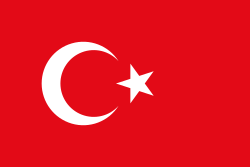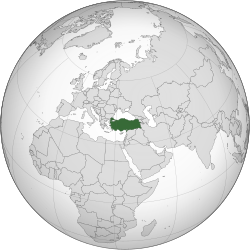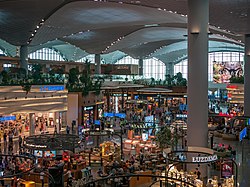

The following outline is provided as an overview of and topical guide to Turkey:
Contents
- General reference
- Geography of Turkey
- Environment of Turkey
- Regions of Turkey
- Demography of Turkey
- Climate of Turkey
- Government and politics of Turkey
- National government
- Foreign relations
- Military
- Intelligence organizations
- History of Turkey
- History of Turkey, by period
- History of Turkey, by subject
- Culture of Turkey
- Art in Turkey
- Law in Turkey
- Religion in Turkey
- Sports in Turkey
- Economy and infrastructure of Turkey
- Education in Turkey
- See also
- References
Turkey, officially the Republic of Türkiye, sovereign Eurasian country that stretches across the Anatolian peninsula in Southwest Asia and Thrace (Rumelia) at the southeastern tip of the Balkan Peninsula in Southern Europe. [1] Turkey is a democratic, secular, unitary, constitutional republic whose political system was established in 1923 under the leadership of Mustafa Kemal Atatürk, following the fall of the Ottoman Empire in the aftermath of World War I.









































